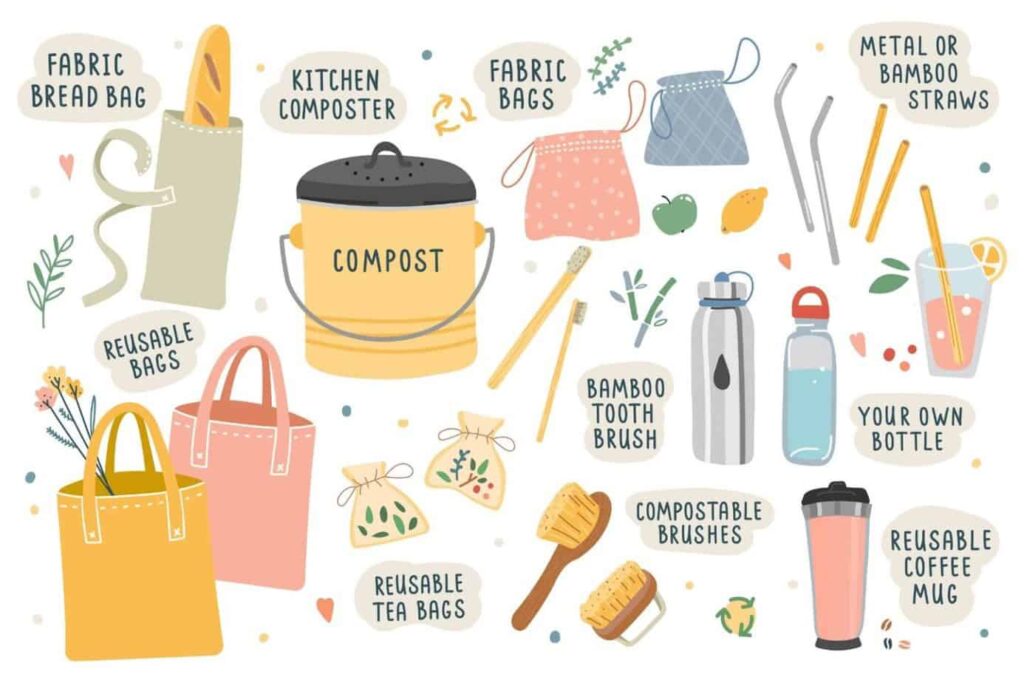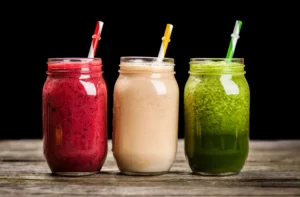Zero Waste Living Tips: More Sustainable Lifestyle

Introduction Zero waste living is a lifestyle that aims to reduce the amount of waste produced by individuals and households, with the ultimate goal of sending nothing to landfills. It’s a response to the environmental challenges faced by our planet and a way for individuals to make a positive impact. By implementing simple zero waste living tips such as meal planning, reducing packaging waste, saying no to single-use items, composting, recycling, making DIY cleaning products, and shopping secondhand, we can significantly reduce our waste and live more sustainably.
Meal Planning and Prep
One of the easiest ways to reduce waste is to plan your meals and do your grocery shopping accordingly. This will not only reduce food waste but also help you save money. When meal planning, consider the amount of food you’ll need for each meal, and try to buy in bulk to reduce packaging waste. When shopping, bring your own reusable bags, containers, and produce bags to avoid plastic packaging.
By following the essential zero waste living tips of meal planning, reducing packaging waste, and avoiding single-use items, individuals can make a significant impact on the environment and live a more sustainable lifestyle.
Reduce Packaging Waste
Packaging is one of the biggest contributors to waste, so reducing it is essential to a zero waste lifestyle. Look for products with minimal packaging, or consider buying in bulk. Some bulk stores even allow you to bring your own containers, reducing waste even further. When shopping for groceries, opt for items with minimal packaging, like fresh produce, bulk grains, and legumes.
Say No to Single-Use Items with Zero Waste Living Tips
Single-use items, like disposable water bottles, coffee cups, and plastic utensils, are a significant source of waste. Making a few simple changes can help you reduce your use of these items. Invest in a reusable water bottle, coffee cup, and set of utensils to take with you on the go. By doing this, you’ll not only reduce waste but also save money in the long run.
Composting and Recycling
Composting and recycling are two essential components of zero waste living. Composting is the process of breaking down organic material, like food waste and yard waste, into a nutrient-rich soil amendment. By composting, you can reduce the amount of waste that goes to landfills, and provide your plants with a natural fertilizer. Recycling is also important, as it allows you to divert waste from landfills and reduce the demand for new resources. Make sure to research your local recycling programs and learn what items are accepted in your area.
DIY Cleaning Products
Commercial cleaning products often come in plastic packaging and contain harmful chemicals that can have a negative impact on the environment. Making your own cleaning products using natural ingredients, like vinegar and baking soda, is an easy and effective way to reduce waste and live sustainably. Not only are these products better for the environment, but they’re also better for your health and wallet.
Shopping Secondhand for Zero Waste Living Tips
Shopping secondhand is a great way to reduce waste, as it keeps items out of landfills and reduces the demand for new resources. When shopping secondhand, look for clothing, furniture, and home goods in good condition. Not only will you reduce waste, but you’ll also save money and help support your local community.
To Sum It Up
Zero waste living is a response to the environmental challenges faced by our planet and a way for individuals to make a positive impact. By making a few simple changes, like meal planning, reducing packaging waste, saying no to single-use items, composting, recycling, making DIY cleaning products, and shopping secondhand, you can reduce your waste and live sustainably. Whether you’re just getting started or have been practicing zero waste living for a while, these tips will help you make a significant impact on the environment. Every little change you make, no matter how small, adds up and helps to create a more sustainable future for everyone.








